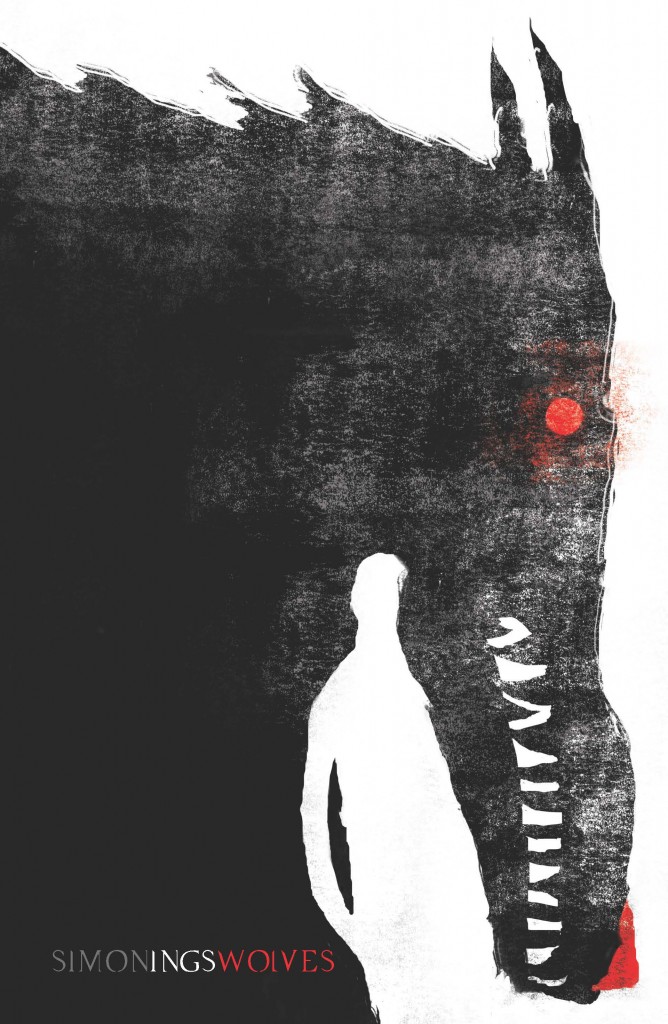By Anthony Biondi (The Cascade) – Email
Print Edition: April 1, 2015
Every so often I come across a book that just has the most stunningly beautiful cover, and a wonderful-sounding synopsis to boot. When these two things come together in a bookstore, it’s a must-buy for me. Don’t judge — this is how I operate. Needless to say, it is not a flawless system, and does occasionally let me down.
The novel Wolves by Simon Ings is one of these covers. It has a lovely abstract painting of wolves with figures hidden in its negative space. On top of that, it promises an interesting spin on the whodunit genre with a science fiction / apocalypse spin. What it turned out to be was definitely science fiction, but was lost somewhere in the literary fiction and slice-of-life canon.
Whenever I read the word “whodunit” and go into a book with the promise of a murder mystery, I assume, perhaps foolhardily, that the murder happens somewhere near the beginning of the book. I assume that the mystery plays a big role in the plot. Well, needless to say, I assumed wrong. Instead, the “mystery” (yes, in scare quotes) happens somewhere near the middle of a somewhat picaresque and episodic novel.
We are introduced to the main character, Conrad, and quickly become thrust into his somewhat uncertain life. He has a girlfriend with hammer-like prosthetic hands, and a best friend, Michel, whom he hasn’t talked to in years. It turns out Michel wants him to come visit his house so he can show off his girlfriend and the big Noah-like boat they are building in order to survive what they call “the fall.”
Michel turns out to be an author obsessed with writing end-of-the-world novels, while simultaneously preparing for his own apocalypse (there is never a hint that one is actually coming). After a big and somewhat apocalyptic storm, Conrad and Michel’s girlfriend end up making a baby together, and things start turning sour.
Conrad is a pioneer on the augmented reality market, creating glasses (and eventually contact lenses) that allow people to view digital manifestations within their real world environment. This, as it turns out, is the crux of the entire narrative. “The fall,” as it were, seems to be perpetuated by the common people becoming so deeply involved in augmentations of the real that they lose what is truly real and become something like zombies for their fake, manufactured realities.
With the proposal of the Microsoft HoloLens project just last year — I’m talking real-world stuff here — this book comes as a kind of warning. I’m not sure if Ings was aware of the project at the time of writing, but I’m sure that he sees a kind of irony in it now.
Either way, the novel itself takes place over large spans of time. We are taken from the beginning of the augmented reality project all the way to the point when it’s so commonplace that it’s impossible to find a person who doesn’t have it installed in their eyes. And I have to say, the novel’s timespan is likely its biggest drawback.
Big moments pepper the novel, but they never really come to a full climax. They appear, dither, then disappear, only to be discussed nostalgically from a later time period. This leaves the novel feeling somewhat shattered, mosaic-like. All the while, there are flashbacks to Conrad’s childhood that build up to his mother’s death as well as other momentous things. Yet what we are left with are just fragments of a whole. There is a feeling of strange disconnection from the events of both past and present, as well as from the characters, who seem to be held at somewhat of a distance. Simon Ings is a brilliant writer, and his prose is strong and melancholic, but he seems to struggle to let his narrative threads bloom into maturity.
Coming out of this book felt like waking from a strange dream. It is a very literary read, with allusions to modern media being tied to the fall of mankind. The idea, told by Conrad late in the novel, that society has to crumble from within and not because of some exterior apocalypse seems to be the crux of Ings’ argument. The introduction of augmented reality to the public seems to cause a dissolution of humanity, society, and reality. Though the idea is very real to us now, and the book is quite well-written, in some ways the book jacket lied to me. What was promised was not what was delivered. It is a good read, but very scattered and broken. Its dreamy prose held me well enough to the end, but had me wondering.
If you are in the mood for literary science fiction, I would recommend this, but go into it expecting strangeness. Go into it expecting to be unsure of what happened by the end. Expect nothing and you’ll be rewarded.


